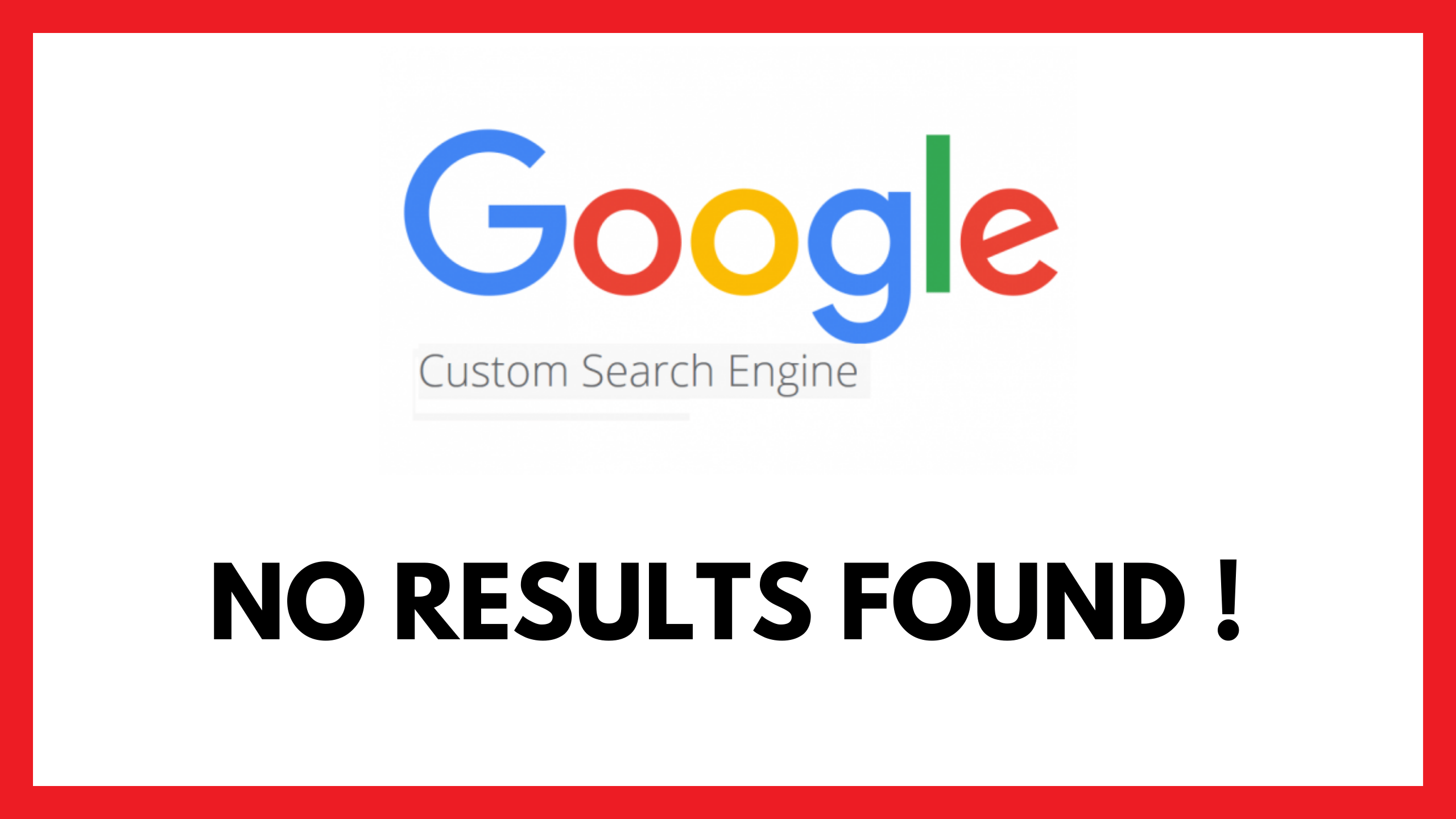Are you finding that your go-to search engine isn't quite as reliable as it used to be? It's a growing frustration for many, and it underscores a critical reality: the era of effortless, accurate online searches is facing unprecedented challenges. The expectation that Google, or any search engine for that matter, should instantly and perfectly deliver precisely what we seek is now colliding with the complexities of algorithm changes, the proliferation of online content, and the ever-present threat of malicious software. It's a high-stakes game, indeed.
Consider the implications of a search engine that not only retrieves information but also summarizes it and offers a "formative opinion." This bold step dramatically raises the stakes for search results. Users are increasingly reliant on these summaries and opinions, making the accuracy and neutrality of the search engine paramount. However, what happens when the algorithm falters, or when bias creeps into the equation? The potential for misinformation and manipulation becomes a serious concern. Its a valid question whether we're ready to entrust our critical thinking to a machine, however sophisticated it may be.
| Category | Information |
|---|---|
| Name | Google Search |
| Type | Web Search Engine |
| Developer | |
| First launched | 1997 |
| URL | Google.com |
The demand for instant and personalized results, fueled by platforms like Google and Amazon, has conditioned web users to expect seamless experiences across all sites. When a search returns "zero results" or a "no results" page, it's perceived as a major roadblock. This frustration highlights the importance of effective search functionality for any website aiming to retain users and provide a positive experience. Its no longer enough to simply have a search bar; it must be intuitive, accurate, and fast.
Navigating the world of online information requires a discerning eye, especially when dealing with potential threats and harassment. Harassment is defined as any behavior intended to disturb or upset an individual or group, while threats encompass any expression of violence or harm towards another. These are critical considerations when evaluating the content and sources that appear in search results. Search engines have a responsibility to mitigate the spread of harmful content and ensure a safe online environment for their users.
Pilots, for example, undergo rigorous training to handle instrument failures, and initially, their proficiency is high. However, this proficiency diminishes over time, leading to less smooth responses in real-life failure scenarios. This illustrates a broader point: skills, whether in aviation or in navigating search engines, require constant practice and adaptation. Relying solely on initial training or outdated techniques can lead to unexpected difficulties when faced with real-world challenges.
For those seeking to manage their online presence, the ability to remove unwanted Google search results can be invaluable. While not always possible, directly requesting the removal of negative results is a viable first step in building an effective personal brand online. However, it's crucial to weigh the potential downsides before making such requests. Consider whether the removal will draw more attention to the negative content, or if it might be better to focus on creating positive content to push the negative results further down the search rankings.
- Sotwe Trends Boy Mom Decoding Whats Viral Now
- Aaron Pierres Dating Life Single Or Taken The Truth Revealed
The way we interact with Google search has evolved significantly. The days of using quotes to force an exact match are largely gone. Instead, users must navigate the search tools located below the search bar. By selecting "Search tools" and then toggling "All results" to "Verbatim," users can attempt to achieve a more precise search. However, even these techniques are not foolproof, and Google's algorithm often prioritizes its own interpretation of the user's intent.
Google Lens offers a novel approach to search, allowing users to explore the world through their phone's camera. This feature enables visual searches, providing information about objects and scenes in real-time. It's a powerful tool for discovering new information and interacting with the physical world in a more intuitive way. However, it also raises questions about privacy and data collection, as Google analyzes images and user behavior to deliver search results.
When encountering persistent issues with Google search, clearing browsing data and cache is often recommended. To do this, users can access their browser settings and select the option to clear browsing history, cookies, and cached images and files. If the problem persists, a more thorough clearing of the cache over a longer period might be necessary. These steps can help resolve conflicts caused by outdated or corrupted data stored in the browser.
Another troubleshooting technique involves changing DNS settings. By configuring DNS settings, users can potentially resolve issues with Google search and improve their overall browsing experience. This involves accessing network settings and locating the DNS server settings. Users can then enter alternative DNS server addresses, such as those provided by Google or Cloudflare, which may offer faster and more reliable connections.
One common frustration with Google search is its tendency to autocomplete queries or remove words from the search term. For example, searching for "bananas nutrition data" might result in Google automatically removing "nutrition data" and simply searching for "bananas." This behavior can be incredibly annoying, as it forces users to retype their queries or refine their search terms repeatedly. It highlights the ongoing tension between Google's desire to anticipate user needs and the user's desire for precise control over their searches.
Google's video indexing report aggregates data by page, providing insights into how videos are performing in search results. While the impression count line in the chart offers a general guide, it's important to remember that the calculations involve subtleties that may not provide an exact count. This underscores the need for careful interpretation of data and a reliance on multiple sources of information when evaluating search performance.
Microsoft Bing, as an alternative search engine, leverages the power of AI to provide information, explore webpages, images, videos, maps, and more. Bing positions itself as a "smart search engine for the forever curious," appealing to users who seek a more exploratory and intuitive search experience. The competition between Google and Bing drives innovation in search technology and provides users with a choice in how they access online information.
It's not uncommon for individuals to experience self-beratement when they fail to achieve their desired outcomes. They might label themselves as "idiots" or "losers" for not succeeding at their attempts. This negative self-talk can be detrimental to motivation and self-esteem. It's important to cultivate a more compassionate and understanding approach to failure, recognizing that setbacks are a natural part of the learning process.
Google search results are the listings displayed by the search engine in response to a user's query. These results aim to provide the most relevant and useful information based on various factors, including content quality, relevance, user experience, and authority. Google's algorithm constantly analyzes these factors to determine the ranking of search results, ensuring that users are presented with the best possible information.
The objectives of performance evaluation should include improving performance in the current job, providing employees the opportunity to participate in setting objectives, but not generating a record of deficiencies for future reference. The emphasis should be on development and growth, rather than solely on identifying shortcomings. A constructive performance evaluation process fosters a positive and productive work environment.
Search algorithms don't just rely on word matches within a page; they also consider the text in links that point to that page. For instance, if many websites refer to a specific page as "the Google blog," a search for "the Google blog" will likely surface that page at the top of the results. This demonstrates the importance of backlinks and anchor text in influencing search rankings.
Any changes in Google's algorithms can directly impact search performance, resulting in fluctuations in loading times, relevancy, and accessibility of search results. These updates can be disruptive, causing websites to lose traffic and businesses to scramble to adapt. However, they also serve as a catalyst for innovation and improvement, forcing website owners to focus on creating high-quality content and providing a positive user experience.
When Google updates its algorithms, the effectiveness of queries can vary, leading to issues like Google search not responding or slower search times. This can be frustrating for users who rely on Google for quick and accurate information. However, understanding the common causes of these issues and implementing simple fixes can help get things back on track.
Whether dealing with slow searches, an unresponsive search bar, or browser glitches, numerous solutions can help resolve Google search problems. From restarting the browser to clearing the cache to adjusting DNS settings, users have a variety of tools at their disposal to troubleshoot and fix common issues. The key is to systematically explore these options and identify the root cause of the problem.
A comprehensive SEO strategy incorporates visitor detection and performance tracking via Google Search Console to optimize engagement, especially when facing challenges like Google not showing search results. By analyzing data from Search Console, website owners can gain valuable insights into how their site is performing in search and identify areas for improvement.
Utilizing features like interactive elements and infographics enhances user interaction and retention, which are critical for improving SEO. Engaging content not only keeps visitors on the site longer but also encourages them to share the content with others, further boosting its visibility in search results. A well-designed and engaging website is more likely to attract and retain visitors, leading to improved search rankings.
Restarting the browser is often the first and simplest step in troubleshooting Google search issues. Closing and reopening the browser can clear temporary files and processes that may be interfering with Google's functionality. While this may seem like a basic solution, it can often resolve minor glitches and get things working again.
Malware or adware on a device can interfere with the browser's ability to load Google search. Malicious software can alter the browsing experience, slow down the browser, and even redirect searches to unwanted websites. Regularly scanning the device with a reputable antivirus program can help detect and remove malware, ensuring a safe and reliable browsing experience.
Users can customize the number of results Google displays per page. In the search settings, there is a slider or a box where the number of results can be set. The default is usually 10 results per page, but the slider can be moved to the right or the number in the box can be increased to boost the number of results per page. This can be useful for users who want to see more information at a glance and avoid having to click through multiple pages of results.
- Stevie Nicks Love Marriage Untold Fleetwood Mac Truths
- Mike Rowe Unveiling His Life Love And Family Is He Married


